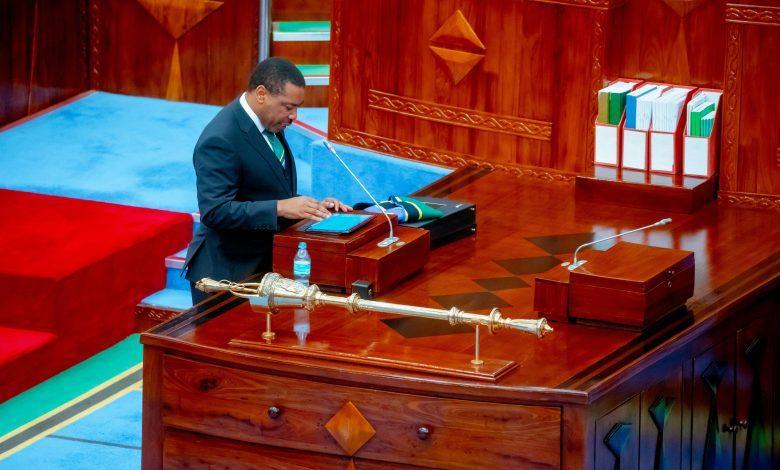Africa-Press – Tanzania. IN a bid to improve the business environment and stimulate economic growth, the government has proposed significant reduction in fees and levies across the livestock and fisheries sectors.
These changes, announced as part of the ongoing implementation of the Blueprint for Regulatory Reforms to Improve the Business Environment, aim to lower the cost of doing business, enhance sector competitiveness and strengthen national food security.
Presenting the 2025/2026 national budget estimates in the National Assembly yesterday, Minister for Finance Dr Mwigulu Nchemba said the measures are designed to promote investment, job creation and sectoral resilience.
Under the proposed revised export fee for livestock which includes the market fee and export fee at border livestock markets, charges for cattle and other large livestock has dropped from 31,000/- to 30,000/-. Fees for sheep and goats will be reduced from 7,000/- to 6,500/-.
“This is a deliberate measure to ease the burden on livestock traders and encourage robust growth in the sector,” said Dr Nchemba.
In the fisheries sector, the import licence fee for finfish (excluding tilapia) will be reduced from 6,500/- to 1,300/- per kilogramme.
“This move is intended to increase fish imports and help bridge the national fish supply gap,” he said.
Currently, Tanzania produces around 509,123 tonnes of fish annually, while national demand exceeds 1.25 million tonnes, leaving a shortfall of nearly 790,000 tonnes.
“Reducing import costs will improve the availability of fish for domestic consumption, enhance nutrition and ensure a steady supply of raw materials such as Nile Perch for local processing and export,” Dr Nchemba said.
Other proposed changes include reducing the export royalty on frozen head-on prawns from 3,120/- to 2,600/- per kilogramme, cutting the import royalty for seashells from 1,300/- to just 52/- per kilogramme and slashing annual import licence fees for live crabs, lobsters, mussels and other crustaceans from 650,000/- to 390,000/-.
“These measures aim to increase the availability of raw materials, stimulate business expansion and support job creation,” Dr Nchemba said.
He added that some reforms also address the needs of stakeholders in sport fishing and align with legal and environmental standards.
“These broad-ranging reforms demonstrate the government’s commitment to creating a more attractive investment climate, strengthening local industry and ensuring long-term food and economic security,” he emphasised.
Dr Nchemba concluded by noting that reduced operational costs are expected to have positive ripple effects across the economy, including increased foreign exchange earnings, new employment opportunities and stronger support for local production.
For More News And Analysis About Tanzania Follow Africa-Press







